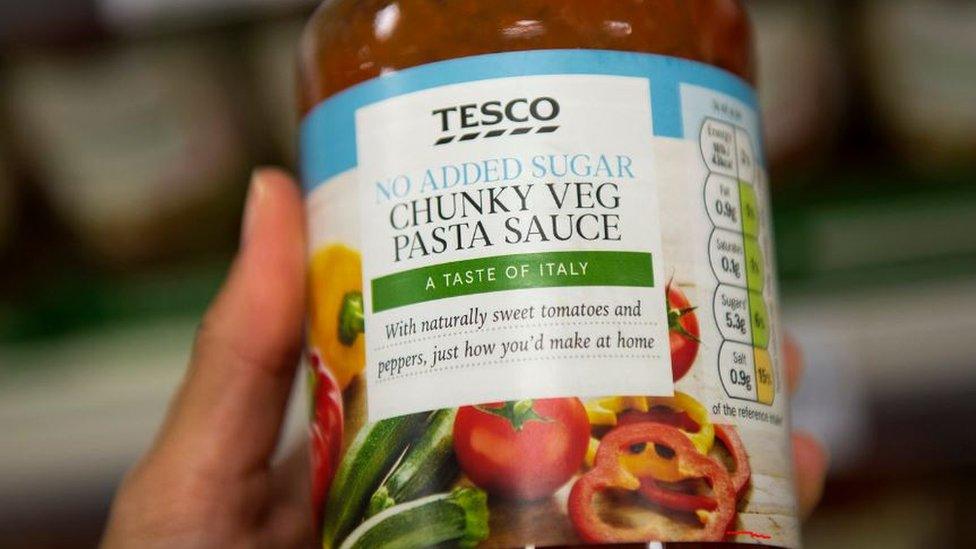Tesco: Why the supermarket is going discount with Jack's
- Published
- comments
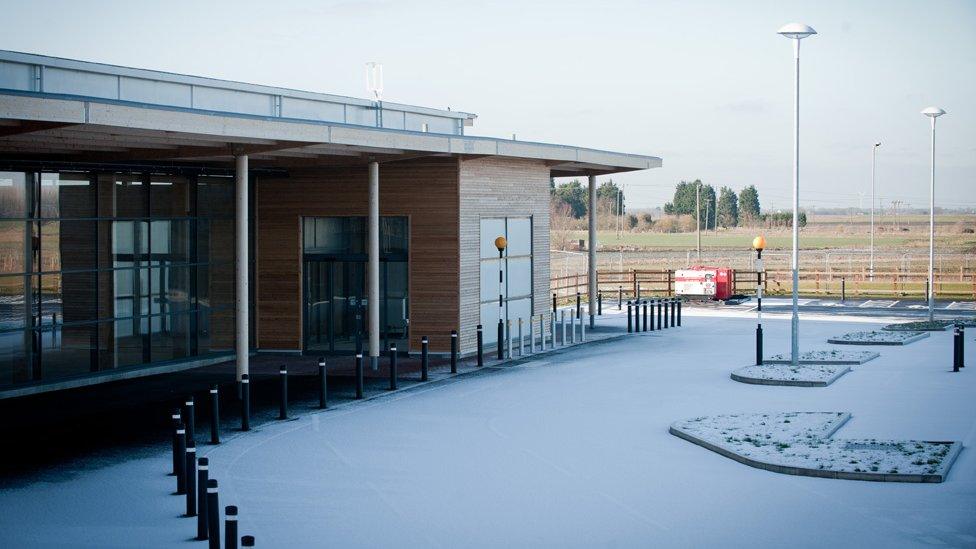
Tesco mothballed its Chatteris store three years ago
Tesco is expected to reveal a new brand next week at a store in Cambridgeshire that was mothballed three years ago.
Some "exciting news" has been promised by the UK's biggest supermarket chain next Wednesday at a media event in Chatteris.
The outlet is expected to be named Jack's, the first of a new chain of discount stores aimed at countering the rise of Lidl and Aldi.
The two German chains now have just over 13% of the UK grocery market.
That is less than half the share claimed by Tesco, but it continues to be outpaced by double-digit growth at both Aldi and Lidl.
Chatteris may have been chosen as the location for the first Jack's as it has an empty Tesco store waiting to be brought back to life.
Half the building is now a Poundstretcher store, leaving the remaining 26,500 sq ft ready for Tesco's second foray into the discount darkness after a failed attempt in the 1980s with its Victor Value brand.
Creating a new brand is a very bold move and not without its risks, says Natalie Berg of NBK Retail: "It's no easy feat to establish in a crowded and cut-throat market, but it's now so competitive that retailers are being forced to think outside the box.
"The only way to compete with the discounters is by becoming one."
Worse service?
Setting up Jack's - said to be named after Jack Cohen, who founded a grocer in 1919 that later became Tesco - is also an admission that the discounters are now credible competitors, Ms Berg says.
Aldi and Lidl have also shown consumers that they do not have to sacrifice quality in their search for low prices, she adds - and are willing to put up with less product choice and worse service.
It remains unclear how many Jack's stores Tesco plans to open. Clive Black at Shore Capital says the company may want to rebrand between 50 and 100 of its "problem" Metro stores, which are smaller than out-of-town supermarkets but larger than its Express convenience chain.
"Quite where Jack's end up though, across Tesco's network, remains to be seen; it would be a lot of effort for 100 small stores," he notes.
"Jack's, if we are correct, also represents Tesco firmly moving on, coming out of 'fix' mode and being more creative, innovative and ... on the front foot."
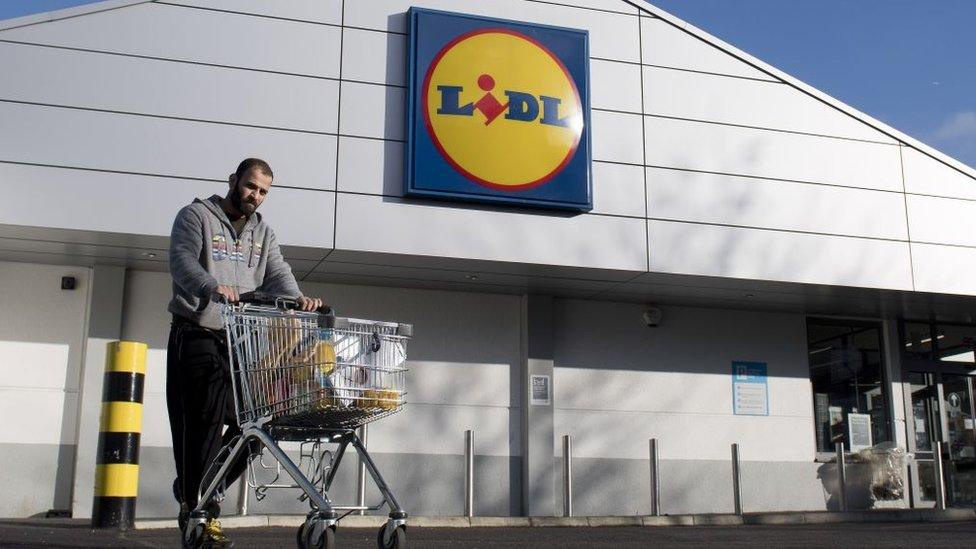
Lidl's sales growth is outpacing that of Tesco
Analysts at Bernstein think Tesco will not directly copy the Aldi/Lidl model but opt for a "cross over between a cash and carry and a discounter", with at least 20 stores to be announced initially.
"Tesco has about 3,400 stores in the UK: we would expect some unused sites, a collection of Metro stores and some smaller supermarkets to be converted," they said.
"If successful, this new retail format is likely to put material pressure on all other UK retailers."
Bruno Monteyne at Bernstein adds that Tesco is perhaps unique in having "the scale and power to develop such an innovation".
The arrival of Jack's is just one of several tectonic shifts taking place in Britain's ultra-competitive grocery market. Sainsbury's, the second-largest supermarket chain, shocked the industry in late April by announcing a merger with the struggling Walmart-owned Asda.
Combining the two chains would give it just over 30% of the market - more than Tesco's - but the competition watchdog is yet to give its approval.
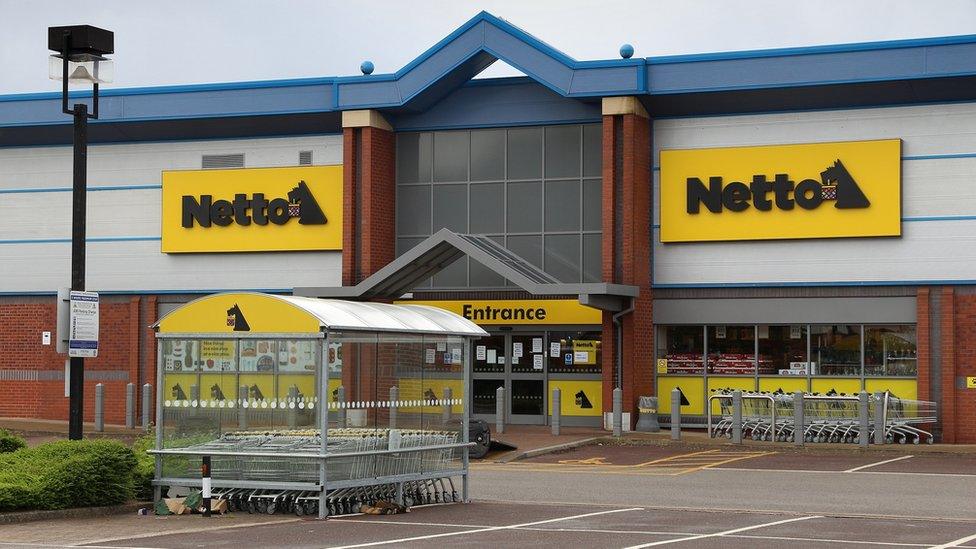
Sainsbury closed its 16 Netto stores in the UK two years ago
Sainsbury's had already bolstered its position by buying the Argos chain in 2016 and the "Sasda" merger was partly a reaction to Tesco's £3.7bn takeover of Booker, the UK's largest food wholesaler which also owns the Premier, Budgens and Londis convenience store brands. That combination got the final nod from the Competition and Markets Authority in December 2017.
Lest we forget Sainsbury's dipped its toe in the discount pool four years ago in a joint venture with Denmark's Dansk Supermarked to revive the Netto discount brand. The difficulty and cost of expanding was blamed for the closure of its 16 stores in 2016.
Morrisons, the smallest of the "big four" supermarkets, struck a deal in February 2016 to supply groceries to Amazon's UK customers.
That relationship has sparked speculation that the US online giant could buy the Bradford-based grocer, whose market value is £6.3bn - something of a rounding error for a company whose value recently rose just above $1 trillion.
However, Ms Berg thinks Jeff Bezos's company could have its eyes on a far bigger prize in the form of Tesco - even if it is worth almost four times as much as Morrisons.
She is convinced Amazon will have acquired a UK supermarket within two years to make it a real player in UK food and apply what it has learned following the company's $13.7bn takeover of upmarket US retailer Whole Foods last year.
If Amazon does decide to wade into the UK grocery war, it may take more than the launch of a discount chain to save the likes of Tesco.
- Published23 July 2018
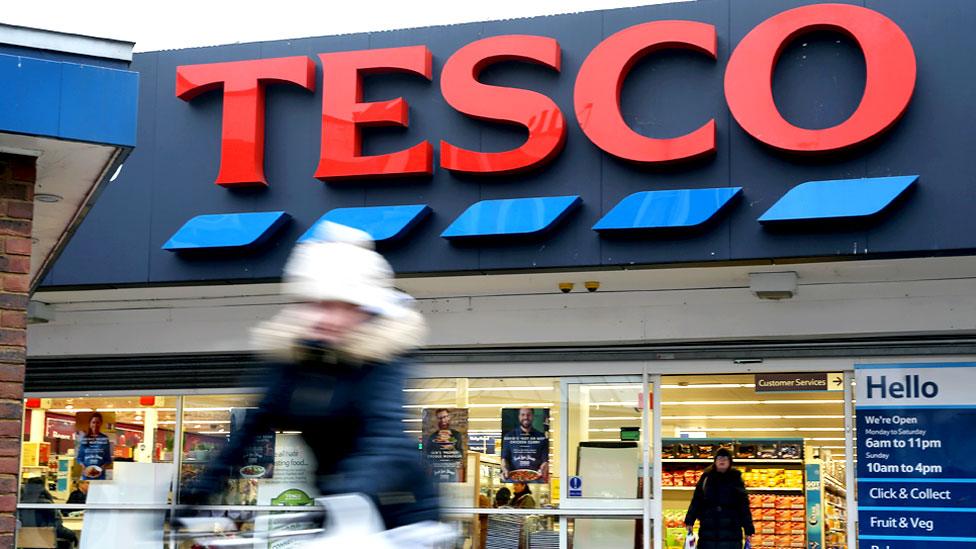
- Published3 July 2018
